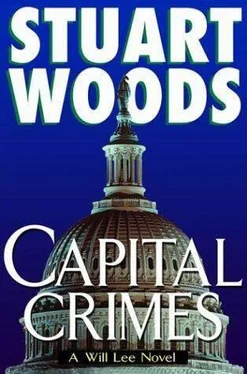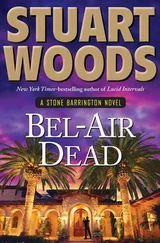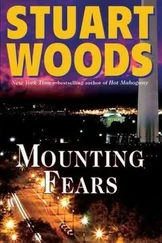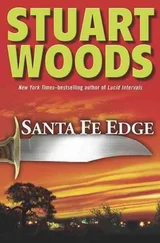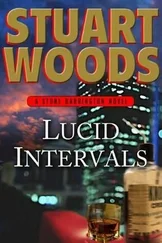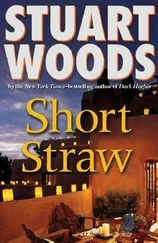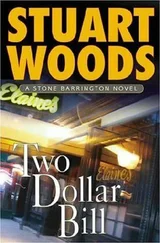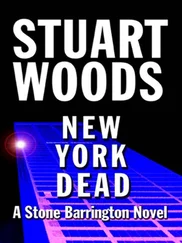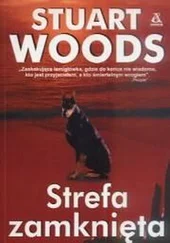TED WOKE UP in the middle of the night to go to the bathroom, as was his habit, and when he came back to bed, he couldn’t sleep. He got up, turned on his laptop, and went to the ACT NOW website. Something had been troubling him. He had passed over a target because he was so obvious and because he would be difficult to kill. Now his conscience was hurting him. He felt he couldn’t end his little crusade without knocking off this one man, who had, Ted felt, done so much to harm his country. He stared at the photograph, and his dander rose.
Eft Efton, speaker of the House, had given this administration fits in getting legislation out of the lower house. The president had a slim majority in the Senate, but in the House he was half a dozen votes shy, and he had had to deal with the speaker to get any legislation through at all.
The speaker had protection, though, and since he was third in line for the presidency, he was guarded by the Secret Service, which had put Ted off. Now Ted reconsidered. The Secret Service detail would be much smaller than the president’s, perhaps only three or four guards. He opened his file on the speaker and read the notes he had kept when researching a possible kill. He had decided earlier, on the evidence, that the easiest shot, and one with the greatest chance of escape, would be while the speaker was in a moving car. The car, of course, would be armored, but Ted had a solution for that.
He looked at the routes the speaker’s driver took from his house in Georgetown to the Capitol: There were four, but it hardly mattered, if he followed the car from his house.
The time was more important; the speaker left his house at eight o’clock sharp each morning, walked quickly from the front door to the car, and didn’t emerge from it until he was safe in the Capitol garage.
Ted stayed up most of the rest of the night planning the killing, and finally, he was satisfied that it would work. He would have to sacrifice the Mercedes, but he had planned to sell it, anyway, and, once clean, it couldn’t be traced back to him.
He opened one of his weapons caches in the RV and found the piece that would defeat the glass in the speaker’s armored vehicle. It was, essentially, a large, semiautomatic handgun with a folding stock that would fire a.50-caliber, armor-piercing shell, and it had a ten-round magazine. He had made the first one in the Agency’s shops and the second one in his home shop, and, as far as he knew, the two examples were the only ones in existence. The weapon would be a nasty surprise for the speaker.
Ted chose a cotton jumpsuit for clothing and a brown wig and a Vandyke beard for a disguise. With his planning done, he wiped down the Mercedes thoroughly, set his alarm clock, and went back to bed.
* * *
AS SOON AS the G-III took off, Kinney was on the phone to the duty officer in the Hoover Building.
“I want a twelve-man SWAT team assembled and ready to roll by three a.m.,” he said. “Be sure they’re equipped with listening equipment. I’ll call you back with a destination.” He hung up the phone and went forward to talk to the pilots.
“We’ve just cleared the Atlanta Class B airspace,” the pilot said.
“There’s a Manassas Regional Airport in Virginia,” he said to the pilot. “Can you land there?”
“Just a minute.” The pilot picked up an airport guide and checked Manassas. “They have a fifty-seven-hundred-foot runway. We can land there.”
Kinney took the book from him and looked at the airport plan. He could see a row of T-hangars on the west side of the field and, behind them a larger single hangar. He picked out a fixed base operator from the list in the manual. “All right,” he said, “change our destination to Manassas. We’ll stop at Dulles Aviation.”
“Will do,” the pilot said. He called Atlanta Center, requested the change in destination and was given a new clearance and routing.
“What’s our ETA?” Kinney asked when the pilot had entered the new routing into his flight computer.
“Three-thirty-one a.m.,” the pilot replied.
Kinney took the reference manual, went back to his seat, and called the duty officer. “When your SWAT team is ready, tell them their destination is the Manassas Regional Airport, in northern Virginia. I will meet them in the parking lot of Dulles Aviation, on the east side of the field. Tell them they are not-repeat, not -to drive onto the ramp; I will come to them. I want them in the parking lot no later than four-thirty a.m., armed and ready.”
“We’re landing at Manassas?” Kerry Smith asked.
“Right. Here’s the airport plan.” Smith leaned over and looked at the book. “We’re assembling with the SWAT team in the parking lot, here. We’ll recce the hangar, here, first, then we’ll bring in the team and take it.”
“Sounds good to me,” Smith said. “Maybe we’ll get lucky.”
IN THE HANGAR, cozy in his RV, Ted slept on.
THE G-III TOUCHED down exactly on schedule and taxied to Dulles Aviation. The engines were shut down, and the copilot opened the airstair door.
Kinney and Smith were out of the airplane in a hurry, jogging toward the FBO. The lights were on inside, and a man sat at the main desk, staring at a television set.
Kinney flashed his ID. “FBI. How long before people start coming into this facility?”
“Usually not until after five A.M.,” the man said, “but occasionally somebody will land or turn up for a departure. You guys want fuel?”
“Check with one of the pilots,” Kinney said. “We’re going to be conducting an operation on this airport shortly.” He pointed to the west. “Do you know who owns or rents that big hangar behind the T-hangars?”
“That’s Mr. Zane,” the man replied. “He bought it a long time ago, I think, but he doesn’t seem to have an airplane. At least, we’ve never sold him any fuel.”
“Do you know what he uses it for?”
“A garage, I think. I’ve seen an RV come and go.”
“What kind of RV?”
“Big, white, stripes down the side.”
“That sounds like every RV. Do you know the make?”
“No, sir. I don’t know anything about RVs, just airplanes.”
“All right, now listen to me: I’m going to put a man with a radio in here with you. If anybody arrives, you tell them the airport is closed for an hour or two, and they’ll have to wait to go to their aircraft. Then, when we start the operation, I want you and anyone else who arrives to lie on the floor behind your desk. I don’t want anybody to catch a stray bullet.”
“Yes, sir,” the man said.
“Do you have a large plan of the airport?”
The man pointed to a wall, where a framed map about four-by-six feet hung.
Kinney went through the main entrance of the building into the parking lot, where two black vans sat idling. He tapped on the window of one of them, and it slid down.
“I’m Kinney, this is Smith,” he said. “Get your men out of there and all of you come inside. Kerry, get the people from the second van.”
A MOMENT LATER, they were inside the FBO, gathered around the map.
Kinney borrowed a weapon from an agent and used its laser sight as a pointer. “This is our objective,” he said, pointing to the large hangar. “We’re looking for one man, Theodore Fay, inside, probably in an RV, certainly heavily armed and a fine shot. We have to do this with the greatest care. I want two men to take some listening equipment and go over there on foot. I want you to attach the equipment to the two side walls, the ones with no doors, and radio back what you hear. You are not, repeat, not, to try to detain this man if you see him. If he sees you and runs, you are authorized to fire at him, but aim low. We want him alive, if possible. Any questions?”
Читать дальше
